Israeli Tanks Reach Centre Of Rafah As Security Council To Discuss Camp Blaze
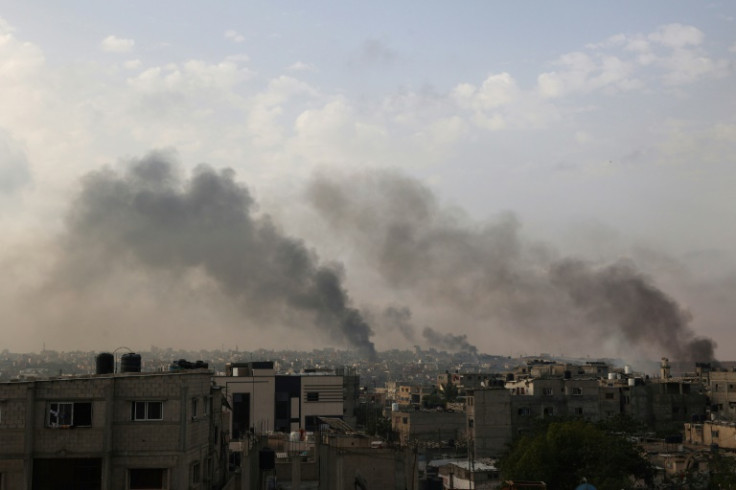
Israeli tanks penetrated the heart of Rafah on Tuesday despite global outrage over a strike that set ablaze a crowded camp in Gaza's far-southern city, killing 45 people according to Palestinian officials.
Israeli tanks were "stationed on the Al-Awda roundabout in the center of the city of Rafah," a witness said. A Palestinian security source confirmed tanks were in the center of Rafah where Israeli troops launched a controversial assault earlier this month.
Sunday evening's camp strike, which Gaza medics said also left hundreds of civilians with shrapnel and burn wounds, drew condemnation from world leaders and was set to be discussed at an emergency meeting of the UN Security Council from 1915 GMT.
The sight of the charred carnage, blackened corpses and children being rushed to hospitals led UN chief Antonio Guterres to declare that "there is no safe place in Gaza. This horror must stop."
Israel's Prime Minister Benjamin Netanyahu called the strike a "tragic accident" but also vowed to push on with the military campaign to destroy Hamas over the October 7 attack and bring home all the hostages.
More air strikes and shelling rained down overnight on besieged Gaza -- including Rafah's Tal Al-Sultan area where the displacement camp went up in flames near a facility of the UN agency for Palestinian refugees, UNRWA.
"The situation is very dangerous," said one resident, Faten Jouda, 30. "We didn't sleep all night. There was random bombing from all directions, including artillery shelling and air bombardment as well as firing from aircraft.
"We saw everyone fleeing again," she told AFP. "We too will go now and head to Al-Mawasi because we fear for our lives," she said, referring to a nearby coastal area Israel has declared a safe "humanitarian zone".
UNRWA said that one million civilians had fled Rafah since Israel launched its assault on the city in early May despite a chorus of international warnings.
"This happened with nowhere safe to go & amidst bombardments, lack of food & water, piles of waste & unsuitable living conditions," the UN agency posted on X.
"Day after day, providing assistance & protection becomes nearly impossible."
More than seven months into the bloodiest ever Gaza war, Israel has faced ever louder international opposition, as well as cases before two international courts based in the Netherlands.
In a landmark political move on Tuesday, Ireland, Norway and Spain formally recognized the State of Palestine, a step so far taken by over 140 UN members but few Western governments.
Spanish Prime Minister Pedro Sanchez said on national television that "recognition of the State of Palestine is not only a matter of historic justice... it is also an essential requirement if we are all to achieve peace".
"It is the only way to move towards the solution that we all recognize as the only possible way to achieve a peaceful future: that of a Palestinian state living side by side with the State of Israel in peace and security."
Israel has slammed the announced move as a "reward" for the Islamist Hamas movement that rules Gaza, and earlier recalled its diplomatic envoys from Madrid, Dublin and Oslo.
Foreign Minister Israel Katz went further on Tuesday and launched an attack on Sanchez on X, telling him that "you are a partner to incitement to genocide of the Jewish people".
He also drew a parallel between Spanish minister Yolanda Diaz on the one hand and Iran's supreme leader Ayatollah Ali Khamenei and Hamas Gaza chief Yahya Sinwar on the other, following her call for a free Palestine "from the river to the sea".
Spanish Foreign Minister Jose Manuel Albares said the three governments would "issue a coordinated response" to Israel's angry reaction which he said would be "calm but firm".
The Gaza war was sparked by Hamas's October 7 attack on southern Israel, which resulted in the deaths of more than 1,170 people, mostly civilians, according to an AFP tally based on Israeli official figures.
Militants also took 252 hostages, 121 of whom remain in Gaza, including 37 the army says are dead.
Israel's retaliatory offensive has killed at least 36,096 people in Gaza, mostly civilians, according to the Hamas-run territory's health ministry.
The Sunday night attack that killed dozens in the displaced persons camp was targeting two senior Hamas members, the Israeli military said.
Israel's army said its aircraft "struck a Hamas compound" and killed Yassin Rabia and Khaled Nagar, senior officials for the militant group in the occupied West Bank.
The strike came hours after Hamas had fired a barrage of rockets at the Tel Aviv area, most of which were intercepted.
The resulting civilian toll in Gaza prompted a wave of condemnation, with Palestinians and many Arab countries calling it a "massacre".
Philippe Lazzarini, head of UNRWA, said on Monday that "the images from last night are testament to how Rafah has turned into hell on Earth".
The EU's foreign policy chief Joseph Borrell said he was "horrified" and French President Emmanuel Macron said he was "outraged".
A US National Security Council spokesperson said Israel "must take every precaution possible to protect civilians".
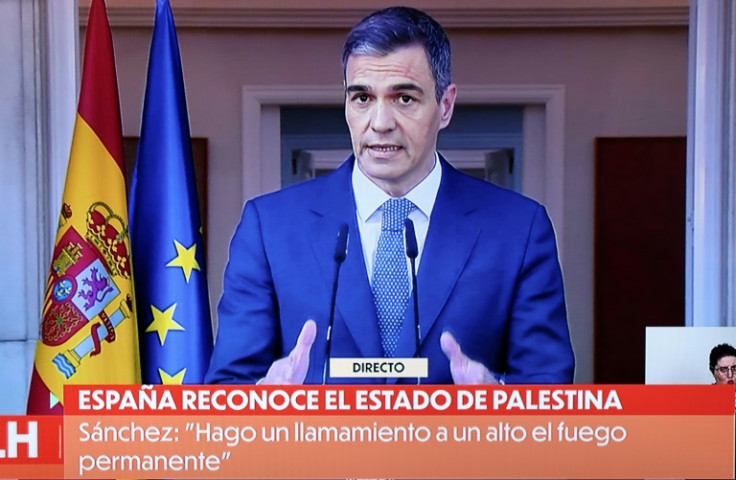
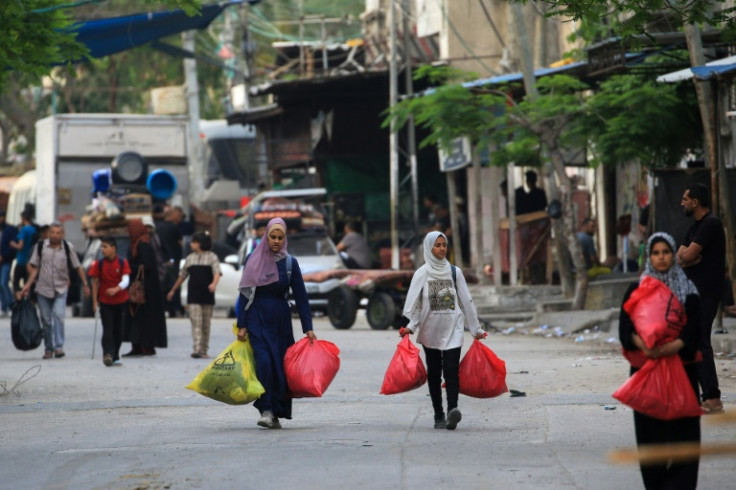
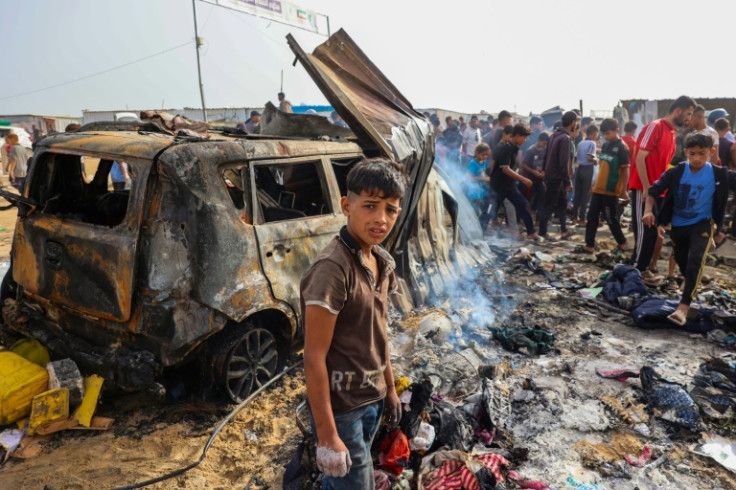
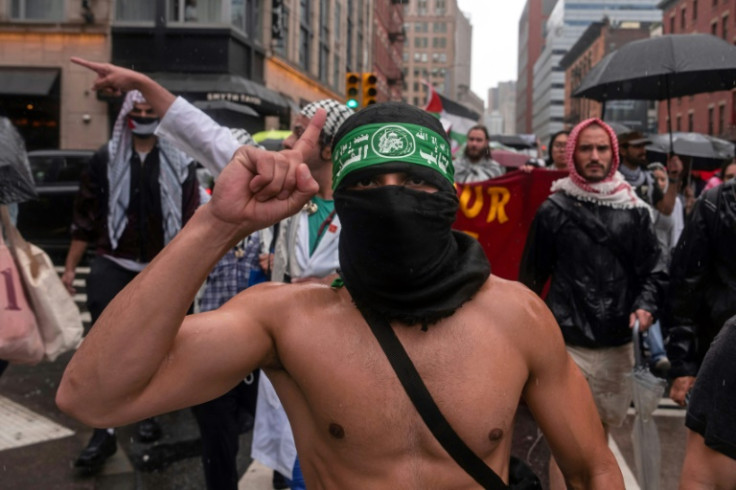
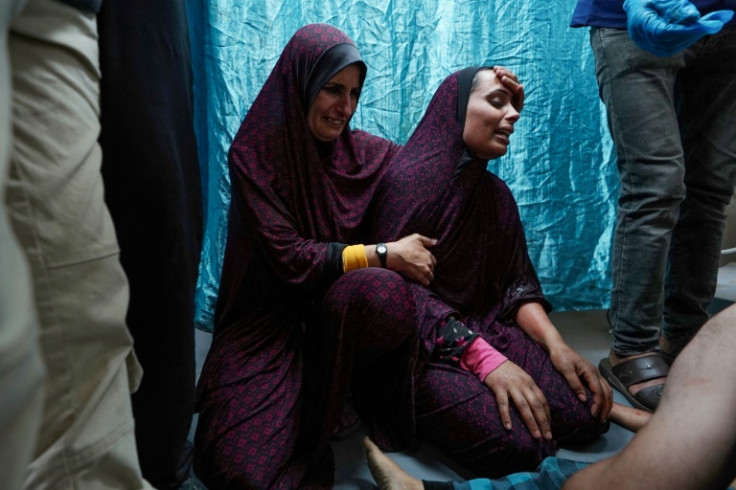
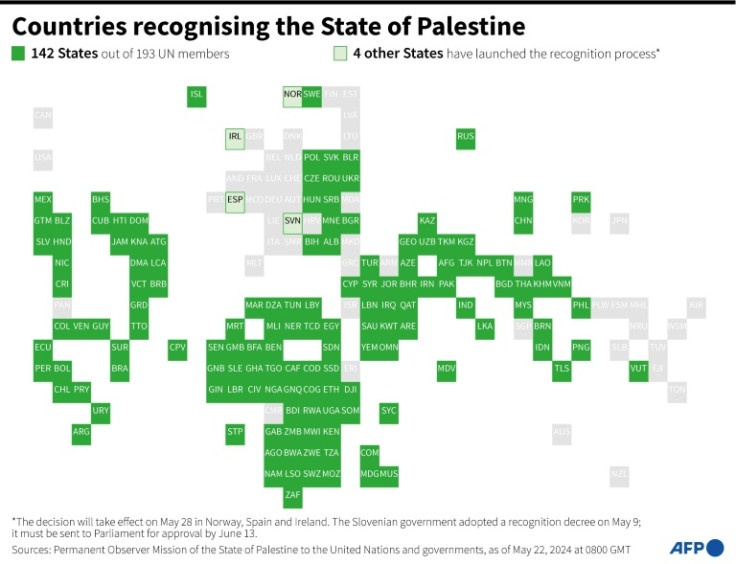
© Copyright AFP 2025. All rights reserved.





















